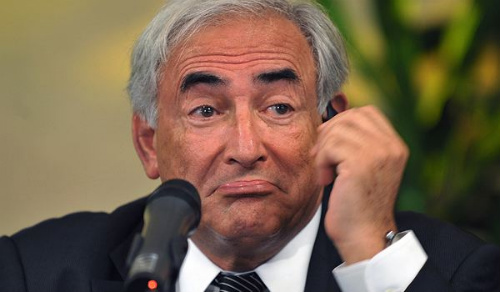Dr. Cornel West is an American racial theorist, civil rights activist and philosopher of political and moral ethics – perhaps you’ve heard of him? Like with most thinkers or philosphers whose ideas are actually worth half a damn, West is a somewhat controversial figure. He’s what some might call “radical” in his politics and more importantly, his ideas. Recently, West has made some rather petty and provocative statements about Barack Obama’s presidency. However, despite West’s self-important pontification on the issue his critiques are unfortunately right on the money. Continue reading
politics
Somewhere in Iowa, likely in an cluster of temporary offices that once housed a Circuit City, Mitt Romney’s staffers are no doubt breathing a little easier today. Elsewhere, in his underground lair, Roger Ailes’ nightly glass of immigrant tears probably tastes just a little cleaner this evening.
That’s because Mike Huckabee announced on his show Saturday night that he will not seek the 2012 Republican nomination. Continue reading
Newt Gingrich is the first Republican to officially announce his run for the 2012 Presidential nomination and this presents a potential problem for the Democratic election machine. If they are very lucky, the folks vying for the nomination will take care of Newt for them. If not, they will need to come to terms with the impeachment of President Clinton. Continue reading

The political world of France was hit with an unexpected scandal today as news emerged of Dominique Strauss-Kahn’s arrest by NYPD late last night on charges of attempted rape.
Strauss-Kahn, a former French Finance Minister and member of the Socialist Party of France, has been serving as the Managing Director of the International Monetary Fund since 2007. Responsible for the French economic turn-a-round in the the 90s that ensured the country’s entry into the EU, Strauss-Kahn was nonetheless forced to resign as Finance Minister amongst accusations of corruption relating to a fraud investigation into Elf Aquitaine, a French oil company, although he was later acquitted.
Continue reading
 Once upon a time, in April of 2010, author and screenwriter Neil Gaiman was approached by the good folks at Stillwater, Minnesota’s library to come and speak, presumably about writing and the like. While he has been known to speak publicly from time to time, he’d much rather spend his days writing, so his agency asked for a kingly sum.
Once upon a time, in April of 2010, author and screenwriter Neil Gaiman was approached by the good folks at Stillwater, Minnesota’s library to come and speak, presumably about writing and the like. While he has been known to speak publicly from time to time, he’d much rather spend his days writing, so his agency asked for a kingly sum.
This will be the first in a multi-part series in Dispatches from Canada about how we organize our country politically, and how we operate our system of parliamentary democracy. This post is going to be about the fundamentals, with the more esoteric stuff saved for later posts. Think of this as a foundation for the posts that come later.

We already know that Sarah Palin is an Internet troll, but it sure does feel nice to have a journalist confirm it. According to today’s piece in The Atlantic, Palin “obsessed over her image” and “orchestrated a campaign to inundate newspapers with phony letters praising her.” A particularly odd obsession, considering that she actually got stuff done for Alaska.
If you guessed Blacks, Gays, Jews, Mexicans or women, you’d be wrong. At least according to Rep. Chris Smith (R, Outer Mongolia).

Public interest and transparency advocacy group Judicial Watch filed a federal Freedom of Information Act Request to force the Obama administration the release photographs of the raid on Osama Bin Laden’s compound in Pakistan last weekend. Included in the suit is a request that pictures of Bin Laden’s corpse be released to the public.
Election Day is today, May 2.
Note: Full disclosure, I am (as mentioned in the comments to the last Dispatch from Canada) a partisan of the NDP. Just so we’re clear.





